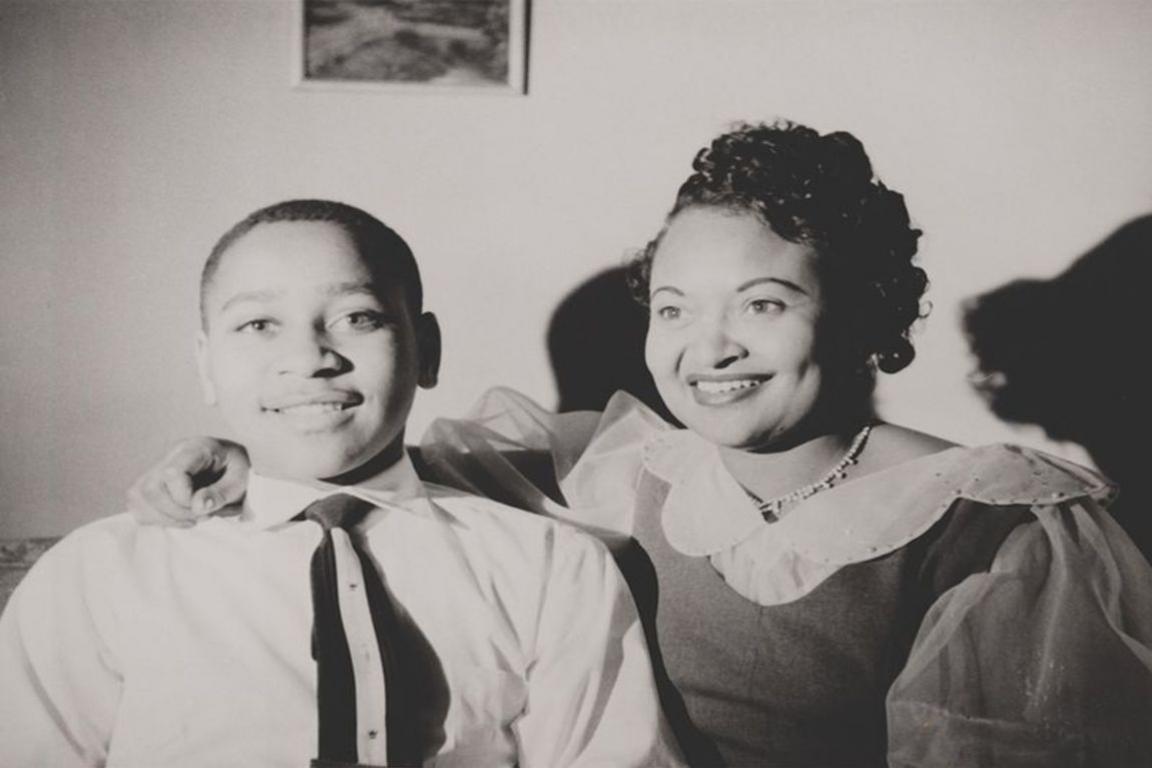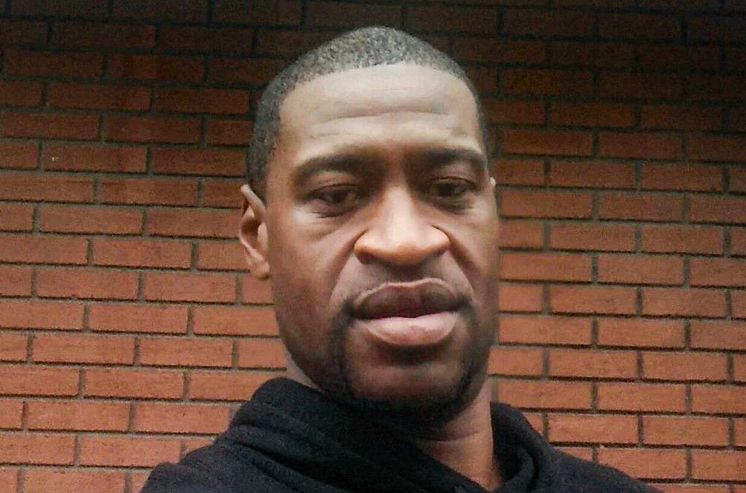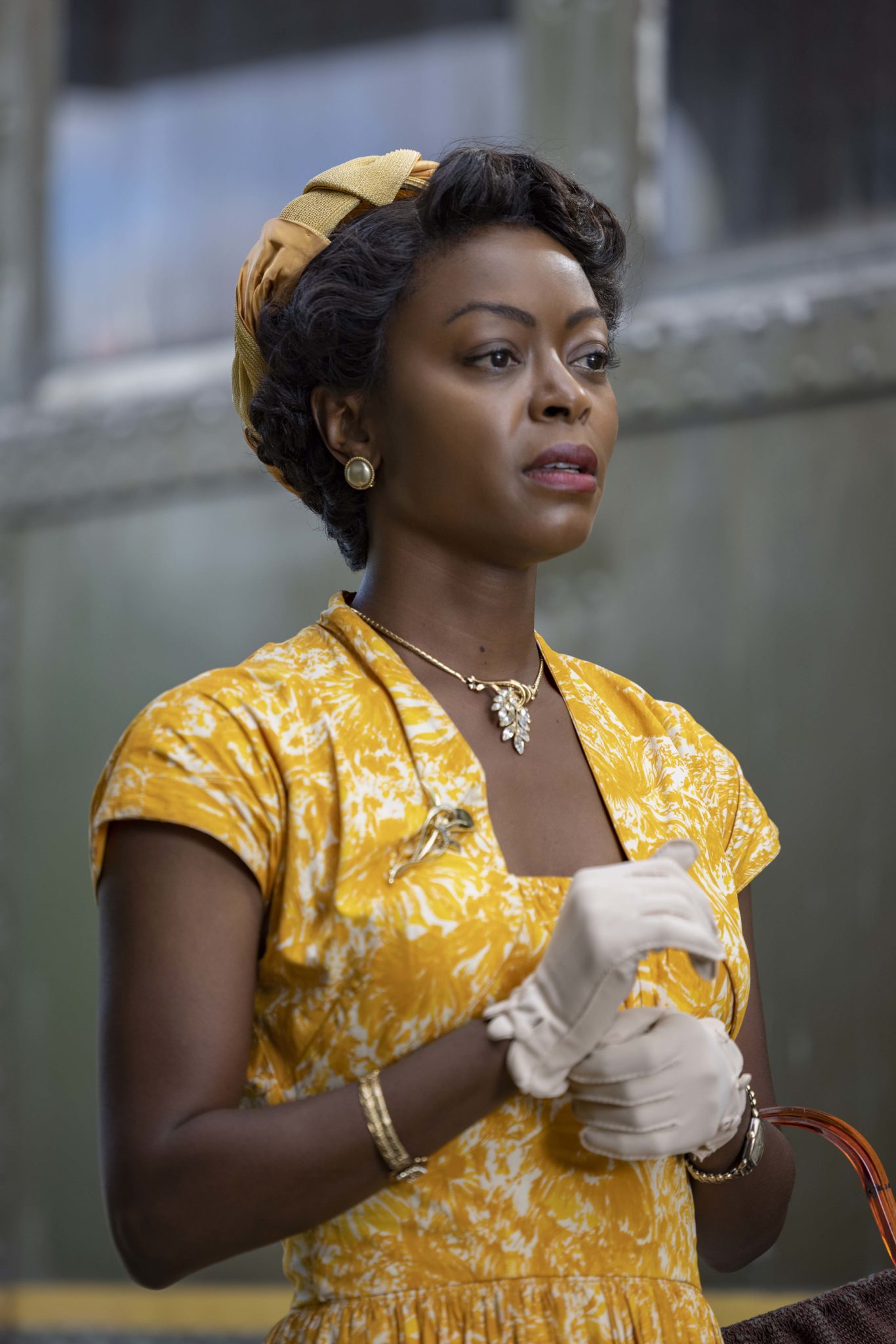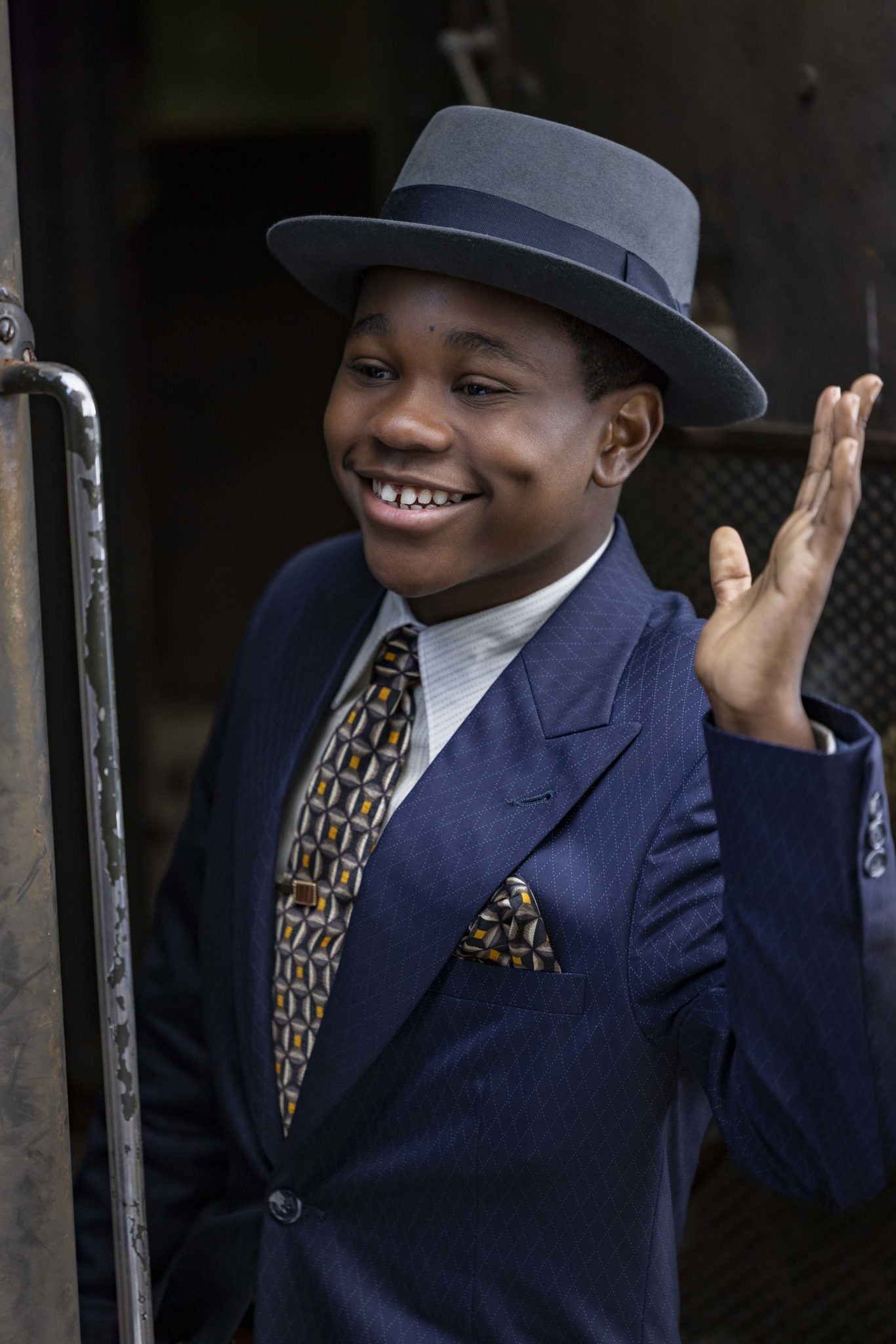- Film And TV
- 06 Jan 23

Acclaimed writer-director Chinonye Chukwu reflects on the experience of making Till.
In August 1955, 14-year-old Emmett Till left Chicago to visit his cousins in Money, Mississippi. One afternoon during his trip, Till entered a shop and spoke to the store’s proprietor, a 21-year-old white woman named Carolyn Bryant, who accused him of offending her. A few nights later, the 14-year-old Black teenager was dragged from his great-uncle’s house in the middle of the night by a group of armed men, including Bryant’s husband Roy, and his half-brother J.W. Milam. The men abducted Till, beat him, mutilated him, shot him, then dumped his body in the Tallahatchie River.
When Till’s body was recovered, his mother Mamie Till-Mobley insisted on a public funeral service with an open casket, so that the American public would be forced to confront the realities of racism and lynchings in America. Thousands of people came to view Emmett Till’s open casket, and images of his beaten and mutilated body were published widely in newspapers. However, in September 1955, an all-white jury found Bryant and Milam not guilty of Till’s murder – though just a year later, the men publicly admitted to torturing and murdering the 14-year-old in a magazine interview, for which they were paid $4,000. Double-jeopardy laws meant they were not tried again.
The viciousness of the case and shocking nature of the images brought intense scrutiny to the state of racist violence in Mississippi and the United States generally, with Emmett Till and Mamie Till-Mobley becoming icons of the Civil Rights Movement. However, as we know, violent racism and the murder of Black Americans continues to ravage America. Only this year, President Joe Biden signed into law the Emmett Till Antilynching Act, a landmark federal law which makes lynching a federal hate crime.
 Collection of the Smithsonian National Museum of African American History and Culture, Gift of the Mamie Till Mobley family.
Collection of the Smithsonian National Museum of African American History and Culture, Gift of the Mamie Till Mobley family.Advertisement
Telling the story of Emmett Till and his mother was always going to be an important and difficult endeavour. The need to recount this story and confront the issue of violent racism without further traumatising Black audiences, or relying on sensationalist images of Black pain and suffering is a delicate balancing act – particularly in a media landscape that often gets this balance very wrong. Writer-director Chinonye Chukwu is known for her award-winning film Clemency, which followed the loves of prison warden Alfre Woodard and a death row inmate.
Clemency was inspired by Troy Anthony Davis, a Black man from Savannah, Georgia who was executed for the murder of a White police officer in 1989. David maintained his innocence for decades, and serious doubts were cast around the investigation of the murder, including the fact that seven out of nine key witnesses recanted their testimony. Despite this, and a high-profile appeal, Davis was executed in 2011. Despite finding Clemency an emotionally difficult film to work on and intending to take a break from such heavy subject matter, Chukwu was similarly driven to make Till by events in real life, knowing the story needed to be told now.
“I was not sure that I was ready to make Till,” says Chukwu.“But sadly, as it too often does, history repeated itself.”
In May 2020, George Floyd was murdered by police officers in Minneapolis. Police officer Derek Chauvin knelt on Floyd’s back for nine minutes and 29 seconds, robbing Floyd of oxygen. Floyd’s murder sparked a wave of protests against police brutality and racism, and his dying words, ‘I can’t breathe’ became a rallying cry in the Black Lives Matter Movement.
“So in 2020 I got ready,” continues Chukwu. “It became clear to me that this story needs to be told, and has to be told now. It was then I committed as an artist, as a human, to the sensitivity this story needs, and the craftsmanship to tell it in a way that is humanising and empowering.”
 George Floyd.
George Floyd.Advertisement
Chukwu was aware of the sensitivity needed to tell this story, and found herself drawn to one perspective in particular.
“I saw an opportunity to subvert expectations and approach the narrative through another lens – from the maternal point of view of Mamie Till-Mobley”, says the director. “Had it not been for Mamie, her son’s memory would have evaporated into thin air. She was the catalyst for a modern day civil rights movement that has laid a formidable framework for future activists and Freedom Fighters. I felt compelled to champion Mamie’s legacy and centre her in the spotlight where she rightfully belongs. Mamie’s untold story is one of resilience and courage in the face of adversity and unspeakable devastation.
“For me, the opportunity to focus the film on Mamie, a multi-faceted Black woman, and peel back the layers on this particular chapter in her life, was a tall order, which I accepted with deep respect and responsibility. Mamie daily combatted racism, sexism and misogyny, which was exponentially heightened in the wake of Emmett’s murder. Mamie did not cower. Instead, she evolved into a warrior for justice who helped me to understand and shape my own similar journey in activism. And as a filmmaker, showing Mamie in all her complex humanity was of utmost importance.”
Danielle Deadwyler plays Mamie Till-Mobley, giving a remarkable performance. Chukwu’s direction is intimate and often lingers on Deadwyler’s face for minutes at time, capturing the pain, grief and determination of a mother seeking justice for her son. But the direction isn’t just thoughtful about capturing performances; she gave a lot of thought and consideration to how to place the camera, and what to show onscreen when it came to scenes of violence, and to showing Emmett’s body.
“I didn’t want to show what was physically done to Emmett,” says Chukwu. “That is not the story. I didn’t want to traumatise myself as a Black woman and I didn’t want to traumatise audiences. Part of what incited such a global reaction to what happened to Emmett was that the world saw the aftermath of what happened. That is why I – and Mamie – chose to let the world see what happened to her son, because it was important for the world to see the product of this kind of white-supremacist system that we are living in.
“I knew I wanted to be as focused on Mamie’s emotional point of view and perspective as much as possible. So when she is seeing Emmett’s body for the first time, narratively and visually the focus is on her emotional experience seeing the body for the first time. It is not the audience’s emotional experience first. It is about Mamie. That kind of intentionality informs my directorial choices about where the camera is and is not.”
Advertisement
 Danielle Deadwyler as Mamie Till Mobley in TILL, directed by Chinonye Chukwu, released by Orion Pictures. Credit: Lynsey Weatherspoon / Orion Pictures. © 2022 ORION RELEASING LLC. All Rights Reserved.
Danielle Deadwyler as Mamie Till Mobley in TILL, directed by Chinonye Chukwu, released by Orion Pictures. Credit: Lynsey Weatherspoon / Orion Pictures. © 2022 ORION RELEASING LLC. All Rights Reserved.Emmett Till is played by 14-year-old Jalyn Hall, who brings effervescent charisma to the role of Emmett. Chukwu wanted to make sure that he, along with her other actors and crew, felt emotionally safe and protected throughout filming.
“We had a therapist on set every day, who was available for the cast and the crew,” says the director. “Any time I talk with the kids, I always talk with their parents because they were with the children on-set every day. There were certain scenes that I limited to one or two takes, because I didn’t want to put the actor through that multiple times. We let the crews know ahead of time that we have limited takes, and whatever we get in those takes is going to be in the film. So everyone is really focused and it’s a communal effort.
“There was a time when we were shooting the scene where Emmettt was abducted. After a take, we had Jalyn take a second and pause, and he asked could he get a hug from his mom. And we stopped everything we were doing, so he could get a hug for as long as he wanted. I said if he felt he can’t shoot anymore, we’d work with what we had, but he was ready to shoot more. But yes, I made sure the actors knew that if at any point they needed to pause, they could. Because first and foremost, you’re a human being and we should also care for each other. And we’re really mindful of each other’s well being.”
 Jalyn Hall as Emmett Till in TILL, directed by Chinonye Chukwu, released by Orion Pictures. Credit: Lynsey Weatherspoon / Orion Pictures © 2022 ORION RELEASING LLC. All Rights Reserved.
Jalyn Hall as Emmett Till in TILL, directed by Chinonye Chukwu, released by Orion Pictures. Credit: Lynsey Weatherspoon / Orion Pictures © 2022 ORION RELEASING LLC. All Rights Reserved.What is so beautiful about Chukwu’s direction, and what feels important to her filmmaking philosophy, is that while she is telling such a difficult and painful story, she starts and ends her film on notes of joy, not pain. The director reveals that this was a conscious decision, which she hopes has a lasting effect on audiences.
Advertisement
“It was important that we see and feel the joy, the community and the love that exists alongside the inherent sadness and pain, but that’s part of the story,” says Chukwu. “You know, as a Black woman in the world, I have learned to embrace my joy, and the love and community in my life, alongside the frustration and anger of Black woman in the world. And I believe joy, especially for a person of colour, can be a form of resistance.
“I wanted to remind audiences of the humanity, love and joy that existed, in spite of the not-guilty verdict inside of the horrific tragedy. I also hope audiences walk away being activated to be change agents in the world – to really think about how they can contribute to other people beyond their bubble. And hopefully move towards the fight for progress that can happen in our lifetime.”
• Till is in cinemas on January 6. See hotpress.com for an interview with Till star Tosin Cole










